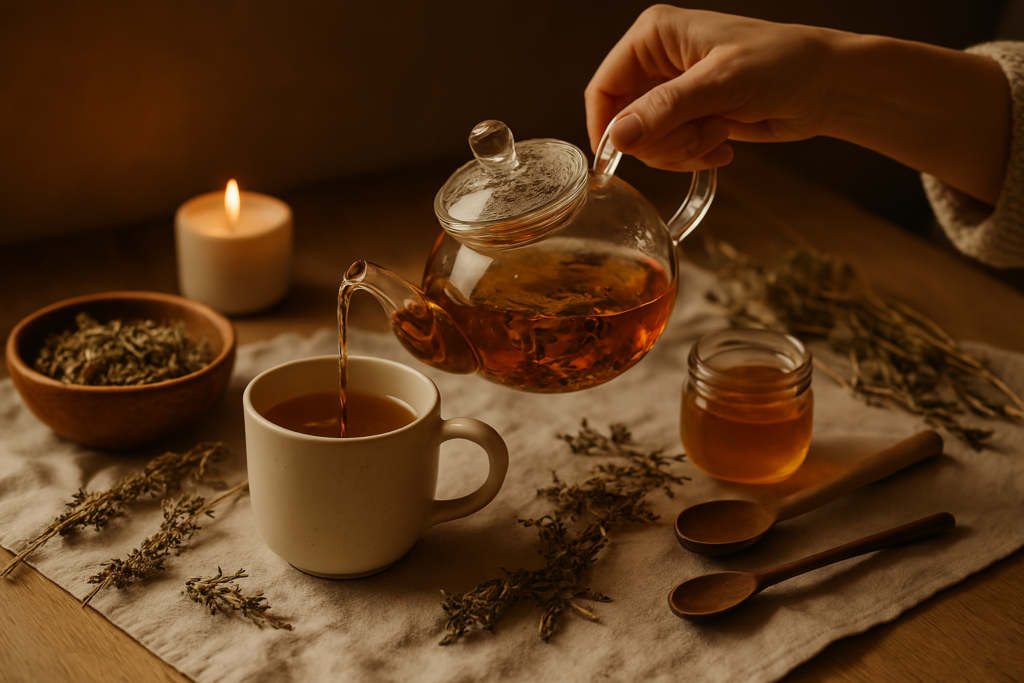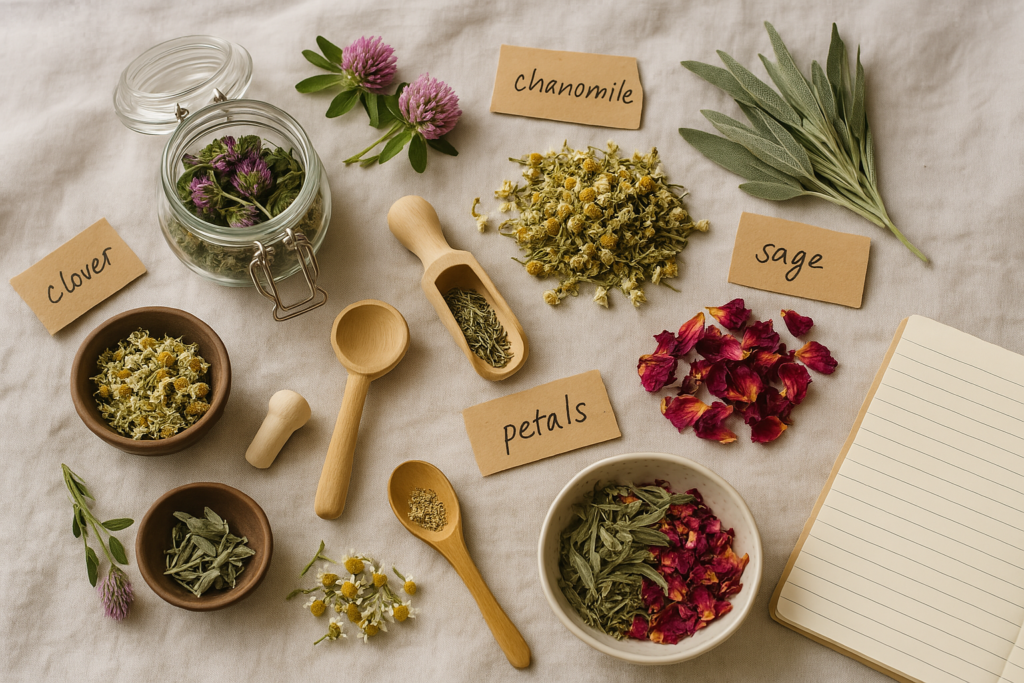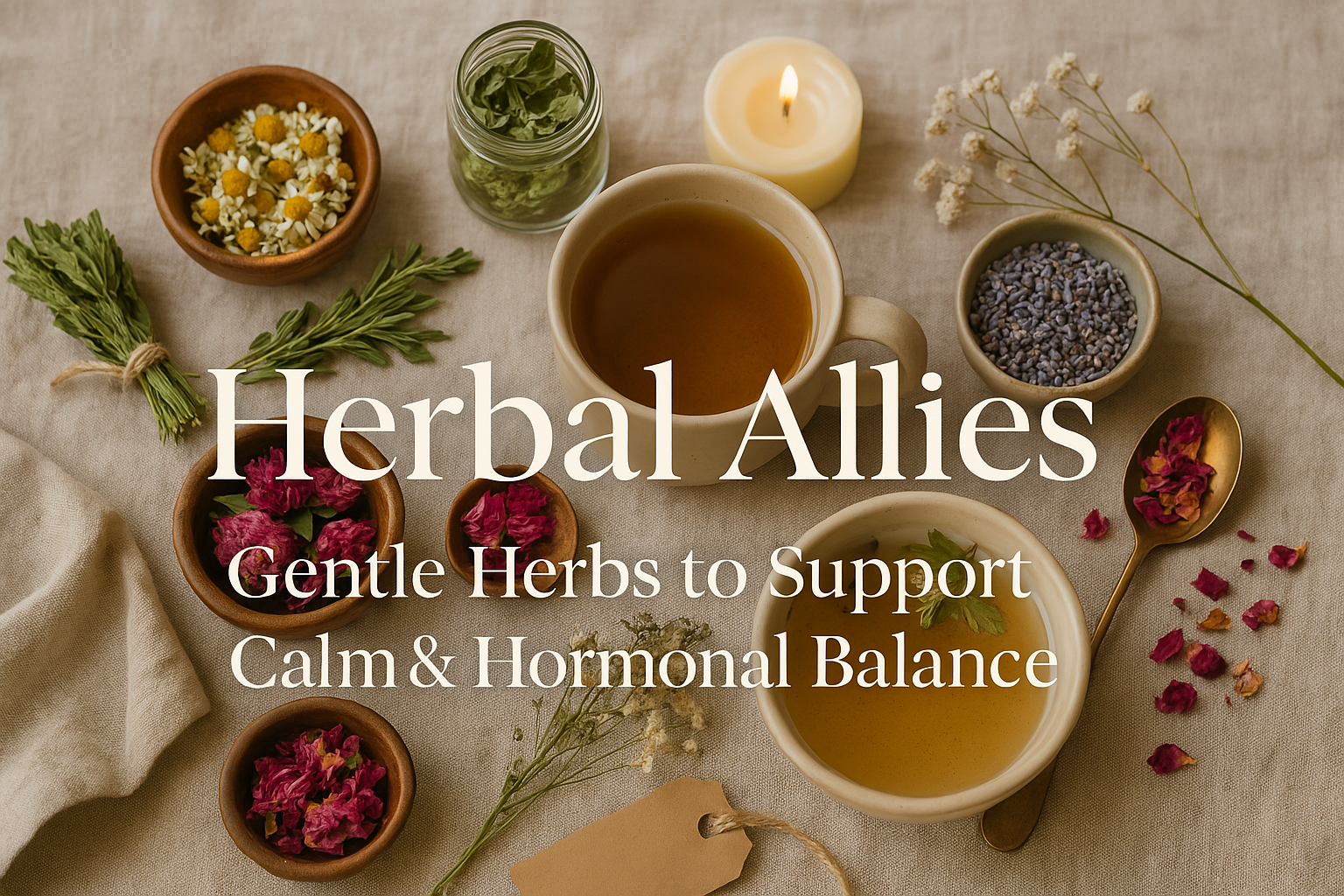Introduction to Herbal Allies for Calmness
In our fast-paced modern society, the quest for calmness and relaxation has become increasingly important. Many individuals are seeking alternative methods to manage stress and promote mental well-being. Among these methods, the use of herbal allies stands out as a gentle and effective approach. Throughout history, various cultures have employed herbs for their soothing properties, utilizing them for relaxation and relief from anxiety. This longstanding tradition highlights the significance of natural remedies in supporting mental health.
Herbal allies such as chamomile, lavender, and passionflower have been cherished for centuries and are known for their calming effects. These plants contain active compounds that have been shown to reduce stress, promote better sleep, and enhance overall emotional health. In addition to their physical benefits, herbs can be perceived as a part of a larger, holistic approach to mental wellness, emphasizing that emotional balance encompasses more than just conventional treatments.
Incorporating gentle herbal remedies into one’s routine can be a straightforward and nurturing way to promote a state of calmness. These natural solutions are often less invasive than pharmaceutical alternatives, making them appealing for those seeking a more gradual, supportive means to address stress. By integrating herbal allies into daily life, individuals can foster a sense of tranquility and resilience.
As we delve deeper into the various herbs that possess calming properties, it is crucial to recognize their potential benefits and how they complement traditional methods of calming the mind. Understanding the historical context and holistic significance of these herbal allies will empower readers to make informed decisions regarding their mental health and well-being.

Key Gentle Herbs for Promoting Calm
In the pursuit of tranquility and relaxation, several gentle herbs have garnered attention for their calming properties. Among these, chamomile, lavender, and lemon balm stand out as effective options, each offering unique benefits that have been recognized through both traditional uses and scientific studies.
Chamomile, particularly the Roman and German varieties, is hailed for its soothing qualities. It has been commonly utilized in herbal teas to aid sleep and reduce anxiety. The primary active compounds in chamomile, namely apigenin and luteolin, bind to specific receptors in the brain, promoting sedation and reducing restlessness. Numerous studies affirm chamomile’s effectiveness; for instance, a randomized controlled trial found that participants who consumed chamomile extract reported significantly lower levels of anxiety compared to those who received a placebo.
Lavender is another herb renowned for its calming effects. Its aromatic oil is often used in aromatherapy to alleviate stress and enhance relaxation. The scent of lavender has been shown to decrease cortisol levels, the hormone associated with stress, while promoting feelings of calmness. A systematic review highlighted that lavender oil could improve sleep quality and reduce anxiety across various populations, reinforcing its status as a gentle yet potent ally in fostering a state of calm.
Lemon balm, a member of the mint family, has also been recognized for its calming attributes. Traditionally used to ease stress and improve mood, lemon balm contains compounds such as rosmarinic acid that exhibit anti-anxiety effects. Research indicates that lemon balm can positively influence cognitive performance and reduce agitation, making it an excellent herb for those seeking overall well-being.
These gentle herbs, when integrated into daily routines, can provide support for those in search of calm in a sometimes tumultuous world. Their effectiveness, backed by both historical use and modern scientific research, highlights the importance of incorporating natural remedies into stress management strategies.
How to Incorporate Herbs into Your Daily Routine
Integrating calming herbs into your everyday life can significantly enhance your overall well-being. There are various methods by which individuals can consume these herbs, each offering unique benefits and drawbacks. Among the most popular forms are herbal teas, tinctures, and capsules. Understanding the nuances of each can help you make an informed choice that aligns with your personal preferences and lifestyle.
Herbal teas are perhaps the most accessible way to enjoy calming herbs. To create a soothing tea, simply steep dried herbs such as chamomile, lemon balm, or lavender in hot water for several minutes. This method not only allows you to enjoy the aromatic qualities of the herbs but also encourages a mindful ritual of preparation and consumption. However, some individuals may find the taste of certain herbs unpalatable, which could hinder their enjoyment of this method.
Tinctures, which involve steeping herbs in alcohol or vinegar, provide a concentrated form of herbal essence. They can be a convenient option for those who prefer a quick and potent dose of calming properties. A few drops under the tongue or added to water can facilitate easy incorporation into your routine. While tinctures are often more potent than teas, the alcohol content may not be suitable for everyone, particularly those avoiding alcohol for health reasons.
Herbal capsules are another option, offering a no-fuss solution for those who dislike the taste of herbs. They provide measured dosages, which can simplify your daily herb intake. Nonetheless, it’s essential to remember that this form may take longer to exhibit effects compared to teas or tinctures, as they require digestion and absorption in the body.
When choosing herbs for integration into your life, sourcing high-quality products from reputable suppliers is paramount. Look for organic options and consider the source of your herbs, as quality can directly affect their efficacy. Additionally, consulting healthcare professionals about possible interactions with medications is essential to ensure safety and effectiveness when introducing new herbs into your routine.

Precautions and Considerations when Using Herbal Allies
When exploring herbal allies to support calmness, it is crucial to approach their use with caution and informed understanding. First and foremost, individuals should consult with their healthcare professionals prior to beginning any herbal regimen. This step is particularly vital for people with pre-existing health conditions or those currently taking medications. Certain herbs may interact with pharmaceuticals, potentially reducing their efficacy or exacerbating side effects, making professional guidance essential.
Furthermore, it is important to be aware of the potential side effects associated with herbal remedies. While many herbs are considered safe when used appropriately, some can cause adverse reactions, especially in sensitive individuals. These may range from mild gastrointestinal disturbances to more severe allergic reactions. Therefore, conducting thorough research on each herb to identify common side effects is advisable.
Contraindications are another critical aspect to consider. Certain herbs may not be suitable for specific populations, including pregnant or breastfeeding women, children, and those with certain medical conditions such as liver disease or heart complications. Understanding these contraindications can help prevent complications and ensure safe use of herbal allies.
Moreover, dosage plays a pivotal role in the effectiveness and safety of herbal preparations. Each herb can have varying recommended dosages, and exceeding these can lead to toxicity or increased risk of side effects. Adhering to suggested dosages, often found on product labels or provided by healthcare professionals, is essential for safe consumption.
In summary, using herbal allies for calmness necessitates a careful and educated approach. By consulting healthcare professionals and being mindful of potential side effects, contraindications, and appropriate dosages, individuals can responsibly incorporate these natural remedies into their wellness routines.







